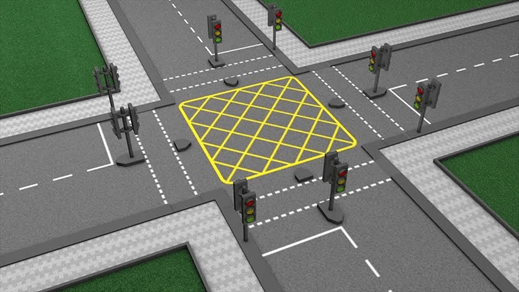What is Epigenetics? This is a question we are seeing more and more regularly these days, with lot of buzz around the huge potential benefits understanding epigenetics can bring, but what does it actually mean?
Epigenetics is a relatively new but growing area that can give us an insight on what specific changes we can make to our lifestyle/environment in order to improve our biological age, by analysing our DNA. Our biological age is considered to be a more accurate measure of our true age, as it accurate reflects how quickly our cells are aging.
It may be a difficult concept to grasp at first but before we go into more details, it is important we understand what DNA and genes are.
What do we mean by DNA and Genes?
DNA (deoxyribonucleic acid) is a long molecule that we have inherited from both our parents that makes up the blue-print of our bodies, which holds essential information regarding how the body develops, functions and grows.
A gene is the part of the DNA that carries instructions to produce a specific protein. We need proteins as they are essential for almost all life processes. From person to person, the majority of our genes are exactly same, but it is the less than 1% difference in our genes that makes us individually unique and holds the secrets to our health as well as wellbeing. Small changes (mutations) to the instructions for the production of proteins may have a beneficial impact, negative impact or no impact on our current/future health.
What is Epigenetics?
Epigenetics is the study of how our lifestyle and surrounding environment influence the behaviour of our genes. To simplify, if we can think about each gene having an “on-off switch”, our lifestyle as well as our environment can influence whether a particular gene is “on” or “off”. The combination of which genes are “on” and which are “off “ impacts on our overall health. I like to use the analogy of a crossroad to try to explain this better – in the picture below we can think of each traffic light as representing a gene.

If all the traffic lights were red then no cars would be moving and although the likelihood of an accident occurs is at a minimum, it is not an efficient/productive way of controlling traffic.
If all the traffic lights were green, then all cars would be moving, however the risk of an accident would be at its highest. Having the right combination of red light and green lights switching on and off, would help the crossroads work in the most efficient way to keep traffic moving whilst keeping the risk of accident as low as possible. Epigenetics is the study of how our lifestyle and environment can influence these traffic lights.
What can it show about our current health?
Epigenetics can be used as a good predictor of our biological age, and can also provide information on the biological age for different parts of bodies, as each part of our body does not age at the same rate i.e. the biological age of your eyes and the biological age of your hearing.
Epigenetics can also be used to see what our risk of developing certain health problems such as certain cancers, mental health problems, diabetes, gut-related health problems, respiratory-related health problems and cardiovascular health problems.
Can understanding our epigenetics help to improve our health?
In a nutshell, yes. By understanding our epigenetics, we can understand what specific changes we need make to our lifestyle or environment in order influence more “good” gene behaviours, lessen “bad” gene behaviours and overall improve our biological age.
Here are a few examples of how epigenetics can improve our health:
A 30 year old gentleman who eats healthily, exercises daily and maintains a slim muscular physique. He wanted to assess his epigenetics to help with his exercise performance. He was surprised to find out it his biological age was higher than expected. By looking at his epigenetics, it was suggested that he was not allowing his body recover enough between exercise sessions and hence was advised to reduce the length of his exercise sessions, which will help to reduce his biological age.
A 35 year old lady who is an ex-smoker, drank alcohol, did not really pay too much attention to her diet, exercises very little and has had difficulty losing weight. Her biological age was 49 when it was first assessed and although her DNA shows that at a baseline she may have an increased risk of developing certain cardiovascular-related health problems due to her ethnicity, her lifestyle choices were adding to that risk. After making changes to her lifestyle based on the previous report’s recommendations, she managed to reduce her biological age to 38.

A 43 year old lady who always seems to be unhappy and moody, works well under pressure but tended to avoid very stressful situations. She does not smoke or drink alcohol but she has been trying to lose some weight. From her epigenetics it was identified that she had reduced dopamine and serotonin levels which increases her risk of anxiety, panic disorders and depression. As she now has an explanation of why she feels unhappy and that she is at an increasing risk of having a mental health disorder, she has actively tried to spend more time on herself and focus on mindfulness.
How do we test for our Epigenetics and is it a one-off test?
A saliva sample is required for this test, which is then sent off to a specific laboratory that can analyse the DNA as well as epigenetics. It can be a one-off test, but to assess how effective any recommended changes to lifestyle and environment have been, it is worth re-testing to see if your epigenetics have changed.
ToHealth was recently awarded 2022 Wellbeing Initiative of the Year for our work exploring DNA & Epigenetics and how understanding this can help improve quality of life. If you’d be interested in learning more or ordering tests for you and your workforce, please don’t hesitate to reach out to us: [email protected]
Looking for more from ToHealth?
Looking to find out more about our Health Screenings? Or interested in supporting your neurodiverse employees and becoming a Disability Confident employer? ToHealth can support you with all of this and more.